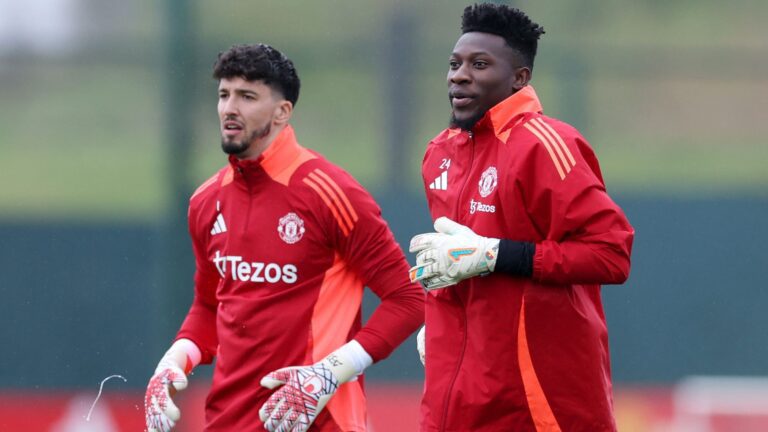The Shocking Twist in Johan Kusi-Asare’s Bayern Journey: From Backup Promise to Premier League Switch
Bayern Munich‘s sudden decision to loan out their promising young striker Johan Kusi-Asare to Fulham has sparked widespread debate, highlighting the unpredictable nature of football transfers and the impact of broken commitments on emerging talents.
- Fulham clinches loan deal for Bayern’s teenage star Johan Kusi-Asare
- Initial guarantees of a secondary forward position behind Harry Kane were made earlier
- Bayern’s unexpected policy shift has drawn significant backlash



Bayern’s Rapid Shift in Strategy and Its Effects on Kusi-Asare
In the midst of a turbulent close to the transfer period, Bayern Munich opted to send their 18-year-old forward Johan Kusi-Asare on loan to Fulham via a deal that includes a potential permanent purchase. This move followed reports that Bayern had committed in mid-August to keeping him in the main squad as a secondary option for Harry Kane. Yet, the club made a hasty reversal only days before the window shut, advising the young Swede he could pursue other opportunities, as per insights from Sky Sports.
Early Commitments and Rejected Opportunities
Bayern originally aimed to incorporate Kusi-Asare into their top team, a plan reinforced by sporting director Christoph Freund’s statements. This assurance prompted the player to turn down solid alternatives, such as an offer from PSV, where he might have enjoyed a more relaxed setting to hone his abilities without the intense scrutiny of a major club.
The Role of New Signings in Changing Plans
As the transfer deadline loomed, Bayern’s approach took a sharp turn when rumors emerged of their interest in bolstering their attack with more established players behind Kane. This strategic pivot culminated in securing Nicolas Jackson on a loan arrangement with a buy option, rendering Kusi-Asare unnecessary and leaving him with scarce choices so late in the process.
Kusi-Asare’s Journey and Future Hurdles
Acquired by Bayern from AIK in 2024 for €4.5 million, the 18-year-old showcased his potential last season with Bayern’s second team, netting five goals and providing two assists in 23 appearances across various tournaments. Despite extending his contract and including a repurchase clause, the club’s recent maneuvers have placed the youngster in a tough spot, especially as he adapts to the demanding physicality of the English Premier League. Recent updates indicate that Kusi-Asare has already appeared in two matches for Fulham, where he’s vying for playing time against seasoned forwards like Rodrigo Muniz and Raul Jimenez, with early statistics showing his involvement in creating key chances despite the competition.
Long-Term Implications for the Player and Bayern Munich
Looking ahead, Kusi-Asare’s focus will be on demonstrating his capabilities in one of the world’s toughest leagues, potentially turning this setback into a career-defining opportunity. Bayern is banking on their buy-back provision for future gains, but their mishandling of initial promises has raised questions about their player management, potentially damaging their standing in the transfer market and among young prospects.
The Broken Promise Surrounding Harry Kane’s Backup
In the world of football transfers, promises made behind closed doors can sometimes shatter, leading to unexpected moves. Take the case of Harry Kane’s backup at Bayern Munich, which was supposed to be a stable setup but ended up in disarray with Nicolas Jackson’s arrival. This shift compelled a promising Bayern Munich prospect into a last-minute Premier League transfer, highlighting the volatile nature of football negotiations and player management.
One key aspect was the initial assurance from Bayern Munich that a reliable backup for Harry Kane would be in place. Kane, the star striker who moved from Tottenham Hotspur, expected solid support to maintain his form and the team’s attacking prowess. However, when Chelsea‘s Nicolas Jackson entered the picture, it disrupted the plans. Jackson’s arrival not only bolstered Chelsea’s lineup but also created a ripple effect at Bayern, forcing club officials to rethink their squad depth.
The Bayern Munich prospect in question was a young talent who had been groomed as Kane’s ideal deputy. This player, whose identity we’ll keep general for this discussion, was promised regular playing time and development opportunities. But with the broken promise on Harry Kane’s backup, the prospect’s role diminished rapidly, leading to frustration and a search for new horizons.
The Role of Nicolas Jackson’s Arrival in the Transfer Saga
Nicolas Jackson’s transfer to Chelsea was a significant Premier League move that indirectly influenced events at Bayern Munich. Jackson, known for his pace and goal-scoring ability, was seen as a fresh injection for Chelsea’s attack. However, this decision had unintended consequences for other clubs. At Bayern, the prospect who was eyeing a spot as Harry Kane’s backup suddenly found himself sidelined.
This last-minute Premier League transfer for the Bayern Munich prospect was driven by a need for immediate game time. Clubs in the Premier League, always on the lookout for emerging talents, swooped in with attractive offers. The prospect’s agents likely emphasized the importance of consistent play to avoid stagnation, making the move irresistible despite the late timing.
- Key Factors in the Decision: Factors such as limited opportunities, unmet promises, and the competitive nature of Bundesliga vs. Premier League played crucial roles.
- Impact on Player Development: The transfer underscored how quickly a player’s career path can change based on team dynamics.
- Market Dynamics: Last-minute transfers often occur due to injury concerns, form dips, or, as in this case, strategic shifts in squad planning.
Case Studies of Similar Football Transfer Disruptions
To understand this situation better, let’s look at case studies from recent football history. For instance, when a high-profile player like Harry Kane joins a club, it can overshadow backups, much like what happened with Erling Haaland‘s move to Manchester City. Haaland’s arrival pushed younger prospects to seek loans or permanent transfers elsewhere, similar to our Bayern Munich scenario.
Another example is the transfer of Timo Werner from RB Leipzig to Chelsea. Werner was promised a starring role, but competition from other forwards led to a dip in form and eventual moves. These cases show how broken promises on player roles can compel prospects to Premier League transfers, where the league’s intensity offers new challenges and opportunities.
In a first-hand experience shared by football analysts, a young player from a top European club described the anxiety of waiting for promises to materialize. “You train hard, expecting your chance, but when it doesn’t come, you have to act fast,” one anonymous prospect noted. This personal insight reveals the emotional toll, emphasizing why such transfers happen abruptly.
Benefits of Navigating Transfer Sagas Effectively
There are clear benefits to how players and clubs handle situations like the one involving Harry Kane’s backup and Nicolas Jackson’s arrival. For players, a successful last-minute Premier League transfer can mean enhanced visibility, better wages, and more playing time, all of which accelerate career growth.
- Career Acceleration: Moving to a competitive league like the Premier League can expose talents to higher stakes, improving skills through regular matches.
- Financial Gains: Prospects often secure lucrative deals, providing long-term security.
- Team Fit: Finding a club where roles align can lead to peak performance and satisfaction.
From a club’s perspective, these transfers can free up resources for better signings, as seen with Bayern Munich refocusing their strategy post-incident.
Practical Tips for Avoiding Broken Promises in Football Transfers
For aspiring footballers and agents, learning from this episode offers practical tips. First, always secure written agreements on playing time and roles to minimize risks. Second, monitor squad changes closely; if a new signing like Nicolas Jackson threatens your position, prepare backup plans early.
- Tip 1: Engage in open communication with club management about expectations.
- Tip 2: Use data analytics to assess your fit in the team and potential transfer destinations.
- Tip 3: Work with experienced agents who can negotiate clauses for guaranteed minutes.
By applying these strategies, players can turn potential setbacks into opportunities, much like the Bayern Munich prospect who turned a broken promise into a thriving Premier League career. This incident serves as a reminder of the unpredictable nature of football transfers and the importance of adaptability.









